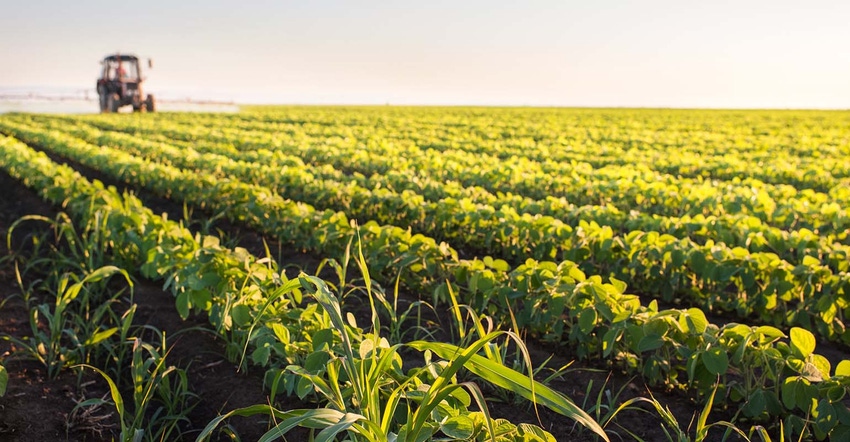July 23, 2018

The Weed Science Society of America has released a report on the off-target movement of dicamba herbicides.
The off-target movement of dicamba was discussed at a workshop that was designed to identify data gaps and develop research protocols to will help all stakeholders better understand and manage factors contributing to dicamba off-target movement.
Dicamba herbicide has been registered for use since the 1960s. After the introduction of dicamba-resistant crops in 2016, dicamba use increased significantly, resulting in many claims of off-site movement and injury.
The report focuses on the reported off-target dicamba issues from 2016 and 2017. It also highlights the state of science-based information and research gaps shared by weed scientists, state and federal regulators, application technology specialists and dicamba registrants who gathered for the workshop to discuss actions that can be taken to promote better understanding and management of the herbicide. Examples include:
Track areas planted in dicamba-resistant crop cultivars, as well as the quantities of dicamba used
Relate dicamba damage complaints to terrain and weather conditions
Improve herbicide labels to address: uniformity in label organization; finding and interpreting use instructions; listing of dicamba-sensitive crops, landscape and native plants, conditions leading to atmospheric inversions and trees and “neighboring distance” information for dicamba-sensitive plant species
Coordinate applicator training so that all trainers present the same detailed information
Perform research to better characterize the potential volatility of new herbicide formulations and to better determine: dose vs. damage relationships for key crops, how to protect growers, property owners and the public from off-target movement and modes of dicamba movement that are not currently accounted for
“Our intent with this research workshop was to identify the major data gaps that need to be filled as technologies are being brought into production fields,” says Scott Senseman, Ph.D., president of WSSA. “We are clearly facing a need for more publicly funded research to identify new and more integrated approaches to weed control.”
Source: Weed Science Society of America
You May Also Like




